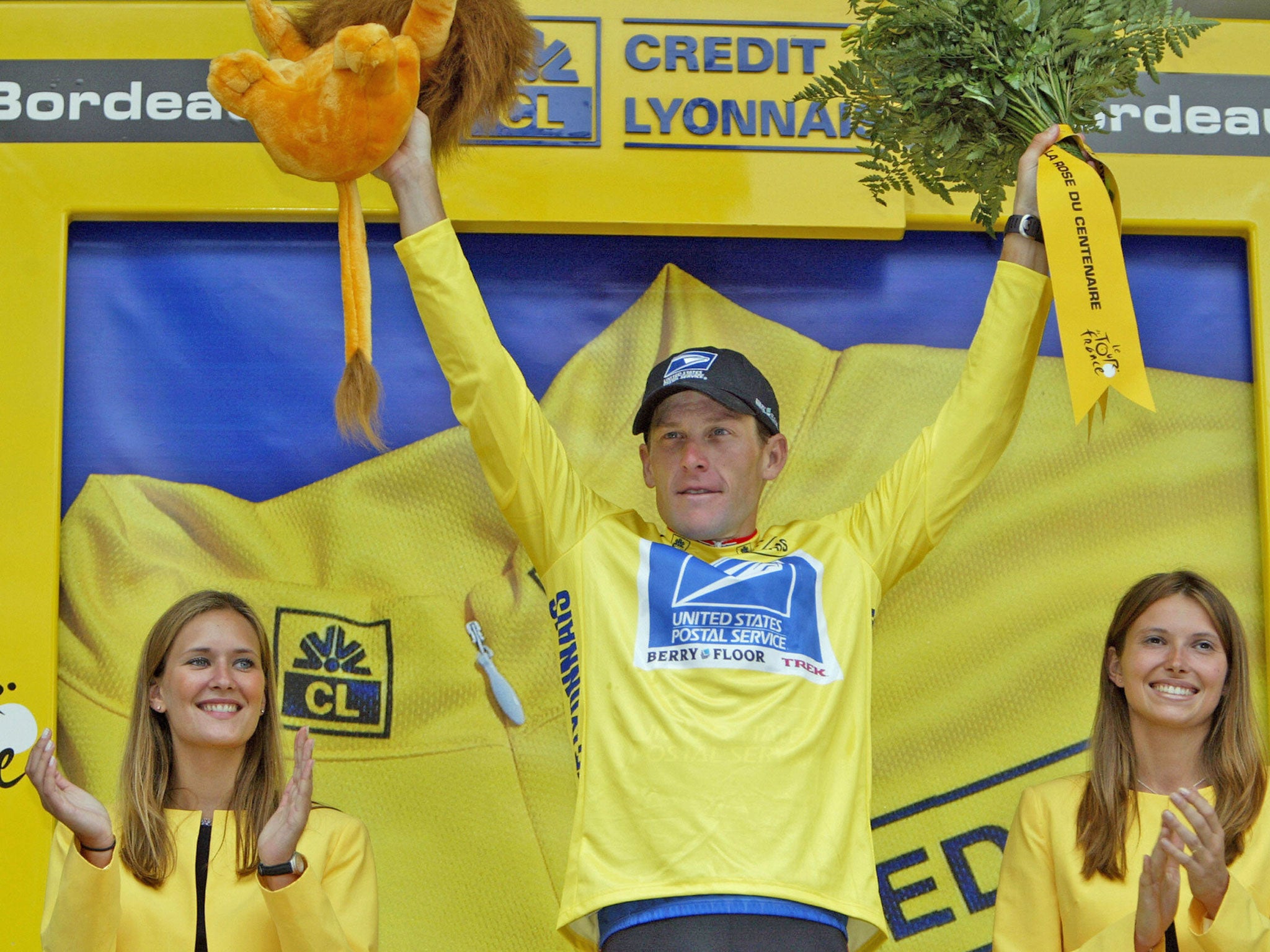'Performance-enhancing' drug that cost Lance Armstrong his seven Tour de France titles doesn't work, finds study
'It’s just tragic ... to lose seven yellow jerseys for a drug that has no effect'

EPO, a supposedly performance-enhancing drug infamously used by cyclist Lance Armstrong before he was stripped of his seven Tour de France titles, does not actually work, according to a new scientific study.
Even though it was once one of the drugs of choice of athletes prepared to cheat and risk blood clots, strokes and other potentially fatal health problems, little scientific testing has been done to support the claims made about it.
The new study sought to do just that with two groups of amateur cyclists given the hormone or a placebo over an eight-week period and then asked to cycle 110km before a race up the towering Mount Ventoux, one of the toughest challenges in the sport which regularly features in the Tour.
The researchers found EPO, a hormone involved in the production of red blood cells, made no difference to the cyclists’ performance in the race, although it did have an effect in laboratory fitness tests to the point of exhaustion.
Most of the cyclists themselves did not seem to notice any boost to their training. Nine out of 23 in the EPO group thought they had been given the drug, compared to six out of the 24 in the placebo group.
Writing in the journal The Lancet, the researchers said: “We showed that it is possible to test potential doping substances in well-controlled clinical trials and that results are much less pronounced than claimed in popular literature and accounts.
“Overall, the results of our study showed that [EPO] treatment enhanced performance in well-trained cyclists in a laboratory-based maximal exercise test leading to exhaustion, but did not improve submaximal exercise test or road race performance.
“The goal of using [EPO] in professional sports is to improve performance during road races, not in maximal exercise tests.”
Armstrong’s seven Tour de France wins made him the most successful cyclist in the event’s history – until he lost all of them after a US Anti-Doping Agency investigation in 2011 and 2012 found he had used banned substances during his career.
His astonishing success on the road, coupled with his recovery from testicular cancer in his mid-20s, had made him one of the highest-profile sportspeople on the planet. About 80 million of his yellow ‘LiveStrong’ wristbands, developed with Nike, were sold to raise money for charity.
Armstrong finally admitted he had taken drugs in an interview with Oprah Winfrey in 2013.
Jules Heuberger, of the Centre for Human Drug Research in The Netherlands, told The Daily Telegraph: “It’s just tragic to lose your career for something that doesn’t work, to lose seven yellow jerseys for a drug that has no effect.”
For the record, the placebo group’s average time of 1:40:15 up Mount Ventoux was actually 17 seconds faster than the EPO group.
Join our commenting forum
Join thought-provoking conversations, follow other Independent readers and see their replies
Comments
Bookmark popover
Removed from bookmarks